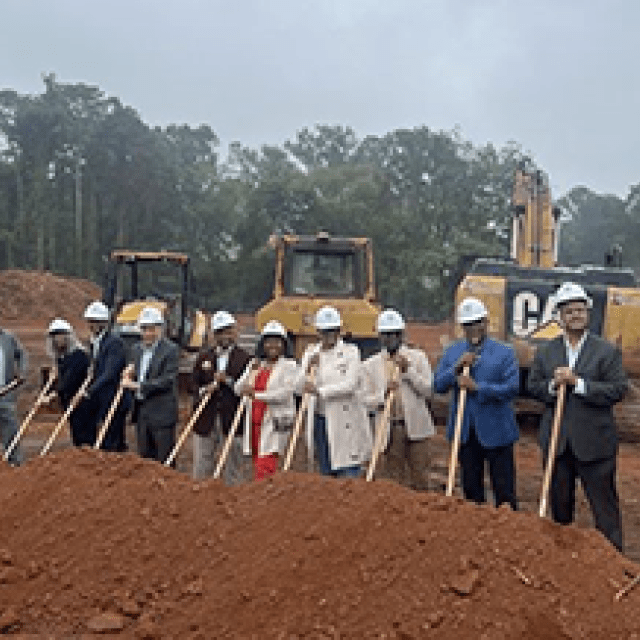In 2020, Neighborhood Renaissance was awarded a Section 4 grant from Enterprise to support its community development and affordable housing activities in South Florida.
We recently spoke with Terri Murray, Neighborhood Renaissance executive director, about the organization’s work and how Section 4 funds helped meet its goals.
Enterprise: Tell us a little bit about the work that you do at Neighborhood Renaissance.

Terri Murray: For 30 years, Neighborhood Renaissance has been dedicated to building and supporting strong economies and diverse communities by investing in homes that are within the financial reach of low- and moderate-income families and individuals.
Over the last eight years, we leveraged investments of more than $46 million in underserved neighborhoods, building or substantially rehabilitating 250 homes and helping 200 low- and moderate-income families and individuals to become homeowners.
Examples of our recently completed developments include:
- Mango Cove, a $9 million partnership with Palm Beach County to construct 36 affordable apartments
- Lake Worth West Village Art Lofts, a residential and commercial development that transformed a block in the Lake Worth Beach Community Redevelopment Area for the benefit of low-income artist households
Most recently, we spearheaded the Coleman Park Neighborhood Revitalization Initiative in the north end of West Palm Beach.
This area was once home to a thriving hub of Black-owned grocery stores, clubs, beauty salons, a library and Lincoln Park, where legends such as Satchel Paige and Josh Gibson played and Negro American Baseball League stars gathered for spring training.
The purpose of the initiative is to support the area’s rebirth into a mix of affordable rentals and minority-owned businesses while making homeownership possible for area residents. To achieve this, we included a model block approach, financial literacy training and a scattered site mixed-use development.
E: How are Section 4 funds used at your organization? What do you hope to accomplish when this initiative is complete?
TM: We used the Section 4 funds as operational support to maintain key professional staff with the experience and expertise needed to move our housing pipeline forward in this highly competitive South Florida market.
Due to the scarcity of sites and competition for few subsidy dollars, it often takes several funding cycles to cobble together financing to build or preserve affordable homes.
It took us 20 months to obtain site control of the 11 scattered-site lots needed to assemble the minimum project size required for Florida Housing Finance Corp’s SAIL RFA – not an easy feat considering the number of sellers involved.
Without Section 4 funds to help offset the costs of bringing this initiative to life, our balance sheet would have taken a hit, making it difficult to cover predevelopment expenses and maintain liquidity for project guarantees.
When completed, this development will provide 43 affordable apartment homes that meet the needs of a range of income levels, ranging from extremely low-income individuals with special needs to low-income working families, while creating the opportunity for small minority businesses to thrive. The completion of the Renaissance Project will also strengthen our development experience so that we can better compete with seasoned tax credit developers.
E: How did Covid-19 challenge Neighborhood Renaissance?
TM: Covid-19 continues to present challenges for the community and Neighborhood Renaissance.
Construction costs have escalated, making it difficult to balance budgets, and disrupted supply chains lead to delays in our work. This makes the tough job of developing affordable homes even harder.
Additionally, engaging residents and conducting financial literacy training over Zoom platforms is not the same as one-on-one contact.
E: What have you learned in this unique and challenging time? Will you make any permanent changes going forward?
TM: The importance of being adaptable. I have learned to trust that staff will get the job done if given the tools they need along with the flexibility to meet clearly communicated goals, tasks and timelines.
Working in the office five days a week from nine to five is a thing of the past. A hybrid schedule that encourages team building and accessibility for clients while giving staff the flexibility to work remotely is the new norm.
E: Tell us a little bit about how you at Neighborhood Renaissance see the next three, six and 12 months?
TM: 2022 promises to be a busy year filled with new opportunities and Coleman Park Revitalization Initiative milestones.
Beginning with the Lincoln Road Model Block, we are completing beautification and traffic calming projects, and we are building two more affordable single-family homes in the neighborhood.
By early summer, we will be under construction for the 43-unit scattered-site Coleman Park Renaissance mixed-use development. We will also continue our financial literacy training series and coaching to help residents achieve their financial goals including homeownership.
As part of our strategic plan, we have joined forces with H.O.M.E.S, Inc. in Fort Lauderdale to develop 30 affordable homes on an existing two-acre campus for youth aging out of Florida’s foster care system.
We will be the developer and H.O.M.E.S. will own, manage and provide wrap-around services to the property through its self-sufficiency program.
E: What do you think will change about affordable housing over the next five years? How are you excited about Neighborhood Renaissance impacting that change?
TM: Within the next five years, we will see more local solutions including housing bonds, removal of regulatory barriers, inclusionary zoning programs and other dedicated local revenues.
I am excited about my work with the Palm Beach County Nonprofit Developer Forum and Housing Leadership Council of Palm Beach County’s Housing Steering Committee to develop a countywide housing plan.
This will give us the tools we need to produce more affordable homes in Palm Beach County.
